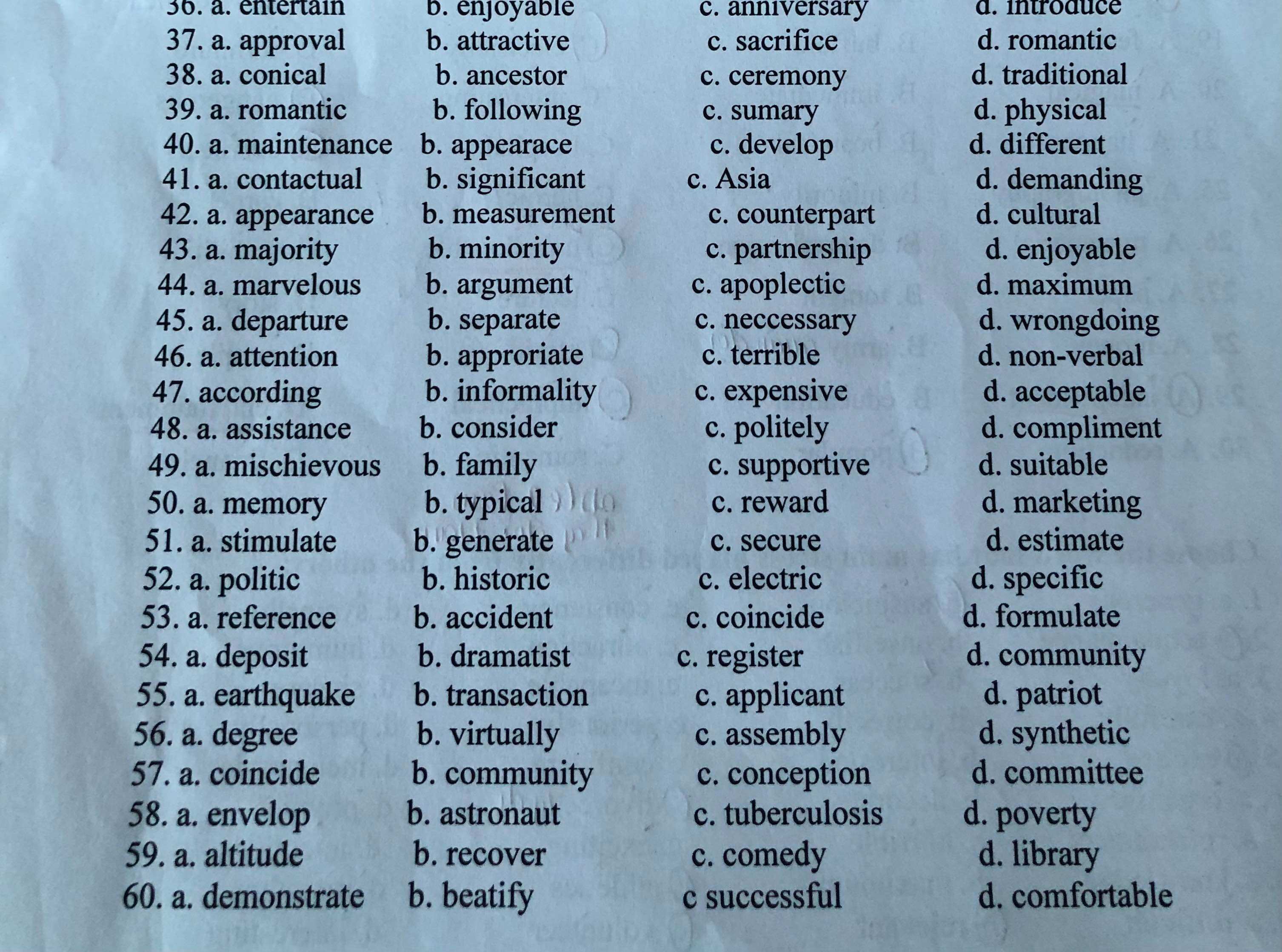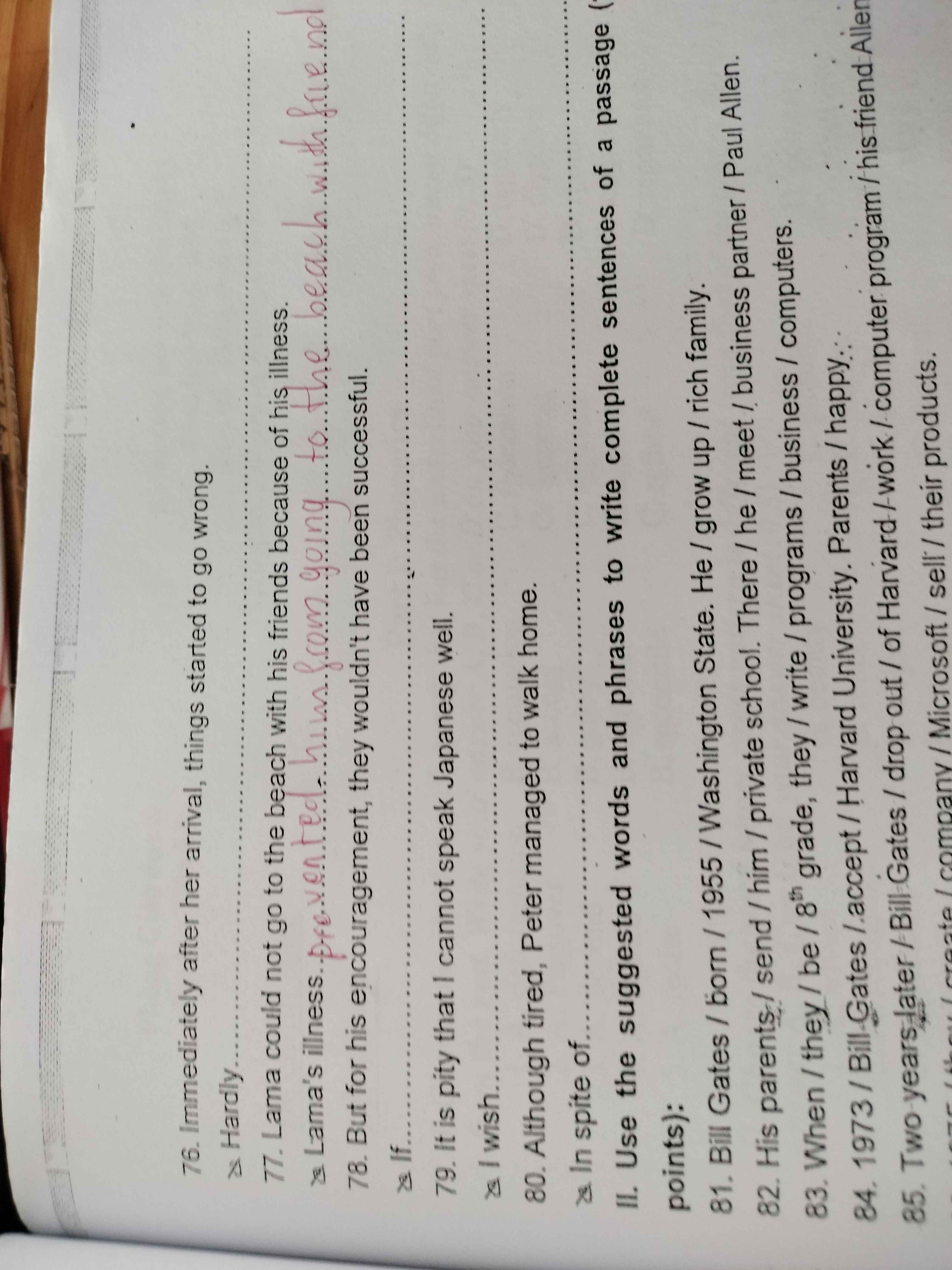9. Do you work or are you a student in…?
10. what do you do study?
11. what’s your jop? What do you đo?
12. what do you study?what are your favorite subjects?
1. what do you do in your spare time?
2. what did you do yesterday/last weekend?
3. what are your plans after shool?
4. what are your hobbies?
5. what are your favorite food?
6.tell me about your family?
7. tell me a bout your day at shool/college?
8. how do you get to school?
9. how long does it take to come to...
Đọc tiếp
9. Do you work or are you a student in…?
10. what do you do study?
11. what’s your jop? What do you đo?
12. what do you study?what are your favorite subjects?
1. what do you do in your spare time?
2. what did you do yesterday/last weekend?
3. what are your plans after shool?
4. what are your hobbies?
5. what are your favorite food?
6.tell me about your family?
7. tell me a bout your day at shool/college?
8. how do you get to school?
9. how long does it take to come to school?
10. have you got any children?
11. have you got any brothes or sisters?
12. do you think that English will be useful for you in the future?
13. do you enjoy studying english? Why? Why not?





